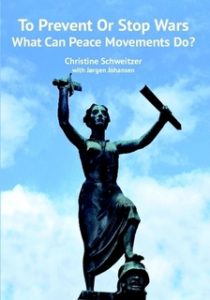Inauguration 2017 Special Coverage w/ Angela Davis, Naomi Klein, Ralph Nader & More
Menu

Special coverage in the Trump Era
From Public Citizen's Corporate Presidency site: "44 Trump administration officials have close ties to the Koch brothers and their network of political groups, particularly Vice President Mike Pence, White House Legislative Affairs Director Marc Short, EPA Administrator Scott Pruitt and White House budget director Mick Mulvaney."
Dark Money author Jane Mayer on The Dangers of President Pence, New Yorker, Oct. 23 issue on-line
Can Time Inc. Survive the Kochs? November 28, 2017 By Jane Mayer
..."This year, among the Kochs’ aims is to spend a projected four hundred million dollars in contributions from themselves and a small group of allied conservative donors they have assembled, to insure Republican victories in the 2018 midterm elections. Ordinarily, political reporters for Time magazine would chronicle this blatant attempt by the Kochs and their allies to buy political influence in the coming election cycle. Will they feel as free to do so now?"...
"Democracy in Chains: The Deep History of the Radical Right’s Stealth Plan for America" see: our site, and George Monbiot's essay on this key book by historian Nancy MacLean.
Full interview with The New Yorker’s Jane Mayer March 29, 2017, Democracy Now! about her article, "The Reclusive Hedge-Fund Tycoon Behind the Trump Presidency: How Robert Mercer Exploited America’s Populist Insurgency."
Democracy Now! Special Broadcast from the Women's March on Washington
The Economics of Happiness -- shorter version
Local Futures offers a free 19-minute abridged version of its award-winning documentary film The Economics of Happiness. It "brings us voices of hope of in a time of crisis." www.localfutures.org.
What's New?
May 04, 2017
To Prevent Or Stop Wars: What Can Peace Movements Do?
By René Wadlow, www.transcend.org
May 3rd, 2017. Posted on popularresistance.org
To Prevent or Stop Wars: What Can Peace Movements Do? By Christine Schweitzer and J√∏rgen Johansen, Irene Publishing, September 2016, 142 pp.

"1 May 2017 – Christine Schweitzer, the current chair of the War Resisters’ International and very involved with the Balkans Peace Team during the 1980s Yugoslav wars, has written a useful analysis of peace organizations opposition to government military policy, basically using secondary sources. There is a good bibliography on nonviolent protests with numerous references to works in German which may be less known to FOR readers.
She focuses on opposition within the USA to the war in Vietnam and the two wars in Iraq (1991) and (2003). There is also a chapter on the peace movement opposition to US government aid to the Contras of Nicaragua. She does not deal with the movements that sought a ban of certain types of weapons, cluster munitions, land mines, drones nor efforts to control nuclear weapons (the Freeze) nor “Ban the Bomb” whose renewed effort is underway at the UN General Assembly these days. The book does not go into a description of socio-economic conditions which may be a cause – or at least an important factor – in armed conflicts. Thus one has to know already something of economic conditions, the class structure, and the role of indigenous populations to understand the Sandinista-Contra struggle in Nicaragua and other armed conflicts in Central America at the same time.
As the focus of the book is on the USA, the term “Peace Movement” is basically on the peace groups founded due to the First World War: The Fellowship of Reconciliation, The War Resisters’ League, The Women’s International League for Peace and Freedom, The American Friends Service Committee, and the Friends Committee on National Legislation. These organizations represent the “hard core” but have avenues of communication with shorter-lived groups that were mobilized around certain issues – Students for a Democratic Society during the Vietnam War, or SANE on nuclear weapons." ...
Read full article

